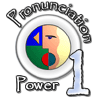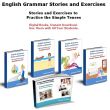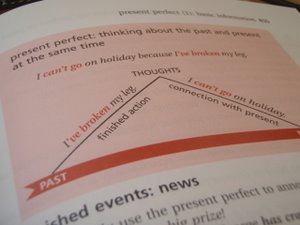When to Use the Present Perfect
by Meissa
(Indonesia)
How to Use Frequency Adverbs
Practical English Usage
I have a question and it relates with my writing. Please explain the difference between these two tenses below:
1. The effects are felt by many people and have cost us a great deal.
2. I even had to stay at home since there was no public transportation which could drive through the water. People who lived nearby the rivers suddenly became refuges; they (have) lost their homes, property or perhaps family members.
In the second sentence I used the present perfect "have lost" and you changed it to the past tense.
I am still confused by the present perfect tense, so if you could please give me more examples and the basic rule of how to use the tense, I would appreciate it.
Thank you very much for your help.
Hi Meissa,
Do not worry. The present perfect is confusing to a lot of people because in most other languages (like Spanish) you use the same tense to convey both the present perfect and simple past in English.
Let’s look at the basics first.
There is a wonderful explanation of the Present perfect in Michael Swan's, Practical English Usage.
When we say that something has happened, we are thinking about it in the past and present at the same time.
You can also use the present perfect to express the idea that something is finished or complete.
If you see the following words, you normally use the present perfect:
ever, before, already, recently, never, lately, yet
If you see the following words you don't normally use the present perfect
yesterday, when, 2 years ago, then, last week, in 2001...anything time related.
Here are some more examples of how to use the present perfect.
Would you like an answer without waiting?
You can answer all your grammar questions yourself and in the comfort of your own home?How? It is simple. Get a copy of
Practical English Usage
I can honestly say that this grammar reference guide is the best I have ever used and I use it daily answering all of your grammar questions; including this question.
Why wait for my answer? When the answer is just a page number away?
Get this book now and start solving your grammar questions!
Click on the image above to buy the book safely and quickly through Amazon.ca
Have a wonderful day!
- Diana :)
Visit the English Grammar section for more Grammar advice.
Return to ask your grammar questions here..
Still looking? Search the site for exactly what you need using the site search box below.
Happy exploring!
Discover these Amazing ESL Materials!
 |
 |
 |
 |
 |
 |
 |
 |
 |
 |

